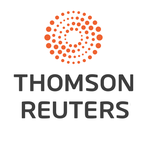The Financial Battlefield: Trump’s Economic Tactics in a Global Arena
April 6, 2025, 3:33 am

Location: United States, Kansas, Winfield
Employees: 1001-5000
Founded date: 2011
Total raised: $820K
In the world of finance, power is often wielded like a sword. The United States, under the leadership of Donald Trump, is poised to use its financial might as a weapon against allies and adversaries alike. The recent surge in tariffs is just the beginning. The real game may lie in the manipulation of the dollar and the financial systems that underpin global trade.
Trump’s administration is exploring aggressive strategies to reshape international trade dynamics. The U.S. dollar, the world’s reserve currency, is a formidable tool. It’s like a key that can unlock or lock doors across the globe. The potential for the U.S. to weaponize its financial resources raises eyebrows and concerns. The stakes are high, and the consequences could ripple through economies worldwide.
The Mar-a-Lago Accord, a proposed strategy to weaken the dollar through international cooperation, is a concept that many economists view with skepticism. The idea is to persuade foreign central banks to appreciate their currencies against the dollar. However, the landscape has changed since the Plaza Accord of 1985. The political and economic realities of today are vastly different. Many experts doubt that such a coordinated effort can gain traction, especially given the complexities of global finance.
If the Mar-a-Lago Accord falters, Trump may resort to more drastic measures. The threat of cutting off dollar funding to foreign banks could serve as a nuclear option. This tactic would disrupt a multi-trillion-dollar market for dollar credit outside the U.S. and could have devastating effects on banks in Europe and Japan. The implications are severe. A sudden withdrawal of dollar liquidity could lead to financial chaos, forcing countries to scramble for alternatives.
Moreover, the U.S. payment giants, Visa and Mastercard, hold significant sway in the global financial ecosystem. They process a substantial portion of transactions in the eurozone. If pressured, these companies could pull their services, leaving European consumers in a lurch. The repercussions would be immediate and profound, pushing Europe to consider alternatives like a digital euro. However, such initiatives are still in their infancy, bogged down by bureaucratic red tape.
The European Central Bank has already expressed concerns about the risks of economic coercion from the U.S. The fear of retaliation looms large. European officials are weighing their options, but any move to counter Trump’s tactics could escalate tensions further. Tariffs or restrictions on U.S. banks could provoke a tit-for-tat response, creating a cycle of economic warfare.
Meanwhile, the Trump family is making waves in the cryptocurrency sector. The takeover of World Liberty Financial by the Trump family is a striking example of how the lines between politics and business are blurring. The family’s claim on a significant portion of the firm’s revenues raises questions about conflicts of interest. Critics argue that this arrangement could lead to influence peddling, as the president’s involvement in crypto ties his fortunes to an unregulated asset class.
World Liberty aims to democratize finance through decentralized platforms. Yet, the structure of its governance tokens favors insiders, leaving little room for public participation. This centralization contradicts the very principles of decentralized finance (DeFi) that the project purports to champion. The Trump family’s control over the venture highlights the risks of intertwining political power with emerging financial technologies.
The crypto venture has attracted substantial investments, with over $550 million raised. However, the lack of transparency surrounding the identities of major investors raises eyebrows. Many buyers are drawn to the project, believing that Trump’s involvement will ensure its success. This perception could lead to a dangerous mix of political favoritism and financial speculation.
As the Trump administration navigates these complex waters, the potential for economic fallout grows. The strategies employed could reshape global trade and finance in unprecedented ways. The weaponization of finance is not just a theoretical concern; it’s a reality that could redefine relationships between nations.
In this financial battlefield, the U.S. holds the upper hand. But wielding such power comes with risks. The backlash from allies could lead to a fragmentation of the global financial system. Countries may seek alternatives to the dollar, undermining its status as the world’s reserve currency. The long-term consequences of these actions could be detrimental to the U.S. economy itself.
As we look ahead, the intersection of finance and politics will remain a focal point. The strategies employed by the Trump administration will set the tone for future economic relations. The world is watching closely, and the outcomes of these maneuvers will shape the financial landscape for years to come.
In conclusion, the financial tactics of the Trump administration are a double-edged sword. They offer the potential for short-term gains but carry the risk of long-term instability. The global economy is a delicate web, and any disruption could have far-reaching effects. As the U.S. navigates this treacherous terrain, the balance of power in finance hangs in the balance. The future remains uncertain, but one thing is clear: the battlefield of finance is set, and the stakes have never been higher.
Trump’s administration is exploring aggressive strategies to reshape international trade dynamics. The U.S. dollar, the world’s reserve currency, is a formidable tool. It’s like a key that can unlock or lock doors across the globe. The potential for the U.S. to weaponize its financial resources raises eyebrows and concerns. The stakes are high, and the consequences could ripple through economies worldwide.
The Mar-a-Lago Accord, a proposed strategy to weaken the dollar through international cooperation, is a concept that many economists view with skepticism. The idea is to persuade foreign central banks to appreciate their currencies against the dollar. However, the landscape has changed since the Plaza Accord of 1985. The political and economic realities of today are vastly different. Many experts doubt that such a coordinated effort can gain traction, especially given the complexities of global finance.
If the Mar-a-Lago Accord falters, Trump may resort to more drastic measures. The threat of cutting off dollar funding to foreign banks could serve as a nuclear option. This tactic would disrupt a multi-trillion-dollar market for dollar credit outside the U.S. and could have devastating effects on banks in Europe and Japan. The implications are severe. A sudden withdrawal of dollar liquidity could lead to financial chaos, forcing countries to scramble for alternatives.
Moreover, the U.S. payment giants, Visa and Mastercard, hold significant sway in the global financial ecosystem. They process a substantial portion of transactions in the eurozone. If pressured, these companies could pull their services, leaving European consumers in a lurch. The repercussions would be immediate and profound, pushing Europe to consider alternatives like a digital euro. However, such initiatives are still in their infancy, bogged down by bureaucratic red tape.
The European Central Bank has already expressed concerns about the risks of economic coercion from the U.S. The fear of retaliation looms large. European officials are weighing their options, but any move to counter Trump’s tactics could escalate tensions further. Tariffs or restrictions on U.S. banks could provoke a tit-for-tat response, creating a cycle of economic warfare.
Meanwhile, the Trump family is making waves in the cryptocurrency sector. The takeover of World Liberty Financial by the Trump family is a striking example of how the lines between politics and business are blurring. The family’s claim on a significant portion of the firm’s revenues raises questions about conflicts of interest. Critics argue that this arrangement could lead to influence peddling, as the president’s involvement in crypto ties his fortunes to an unregulated asset class.
World Liberty aims to democratize finance through decentralized platforms. Yet, the structure of its governance tokens favors insiders, leaving little room for public participation. This centralization contradicts the very principles of decentralized finance (DeFi) that the project purports to champion. The Trump family’s control over the venture highlights the risks of intertwining political power with emerging financial technologies.
The crypto venture has attracted substantial investments, with over $550 million raised. However, the lack of transparency surrounding the identities of major investors raises eyebrows. Many buyers are drawn to the project, believing that Trump’s involvement will ensure its success. This perception could lead to a dangerous mix of political favoritism and financial speculation.
As the Trump administration navigates these complex waters, the potential for economic fallout grows. The strategies employed could reshape global trade and finance in unprecedented ways. The weaponization of finance is not just a theoretical concern; it’s a reality that could redefine relationships between nations.
In this financial battlefield, the U.S. holds the upper hand. But wielding such power comes with risks. The backlash from allies could lead to a fragmentation of the global financial system. Countries may seek alternatives to the dollar, undermining its status as the world’s reserve currency. The long-term consequences of these actions could be detrimental to the U.S. economy itself.
As we look ahead, the intersection of finance and politics will remain a focal point. The strategies employed by the Trump administration will set the tone for future economic relations. The world is watching closely, and the outcomes of these maneuvers will shape the financial landscape for years to come.
In conclusion, the financial tactics of the Trump administration are a double-edged sword. They offer the potential for short-term gains but carry the risk of long-term instability. The global economy is a delicate web, and any disruption could have far-reaching effects. As the U.S. navigates this treacherous terrain, the balance of power in finance hangs in the balance. The future remains uncertain, but one thing is clear: the battlefield of finance is set, and the stakes have never been higher.
